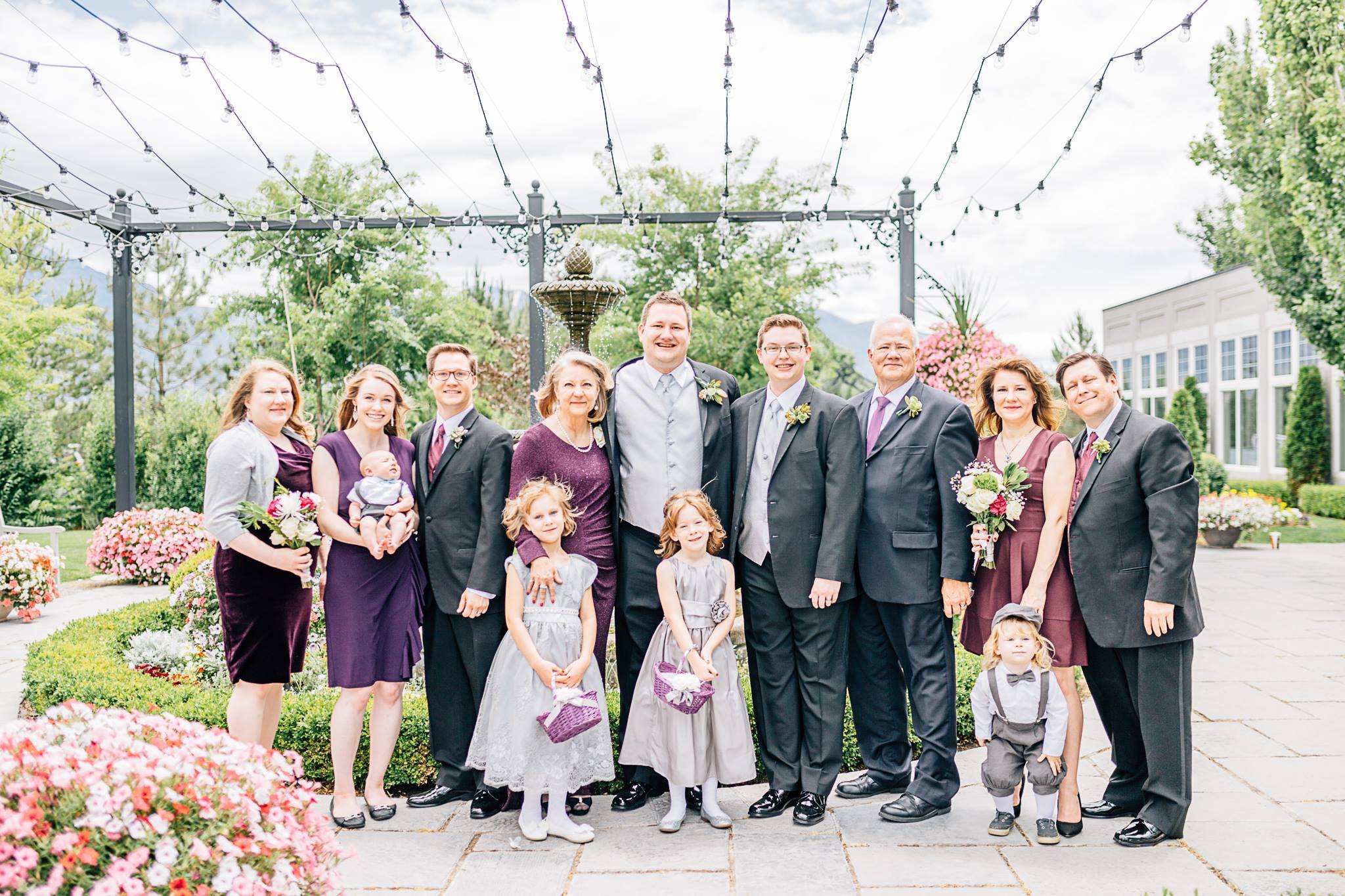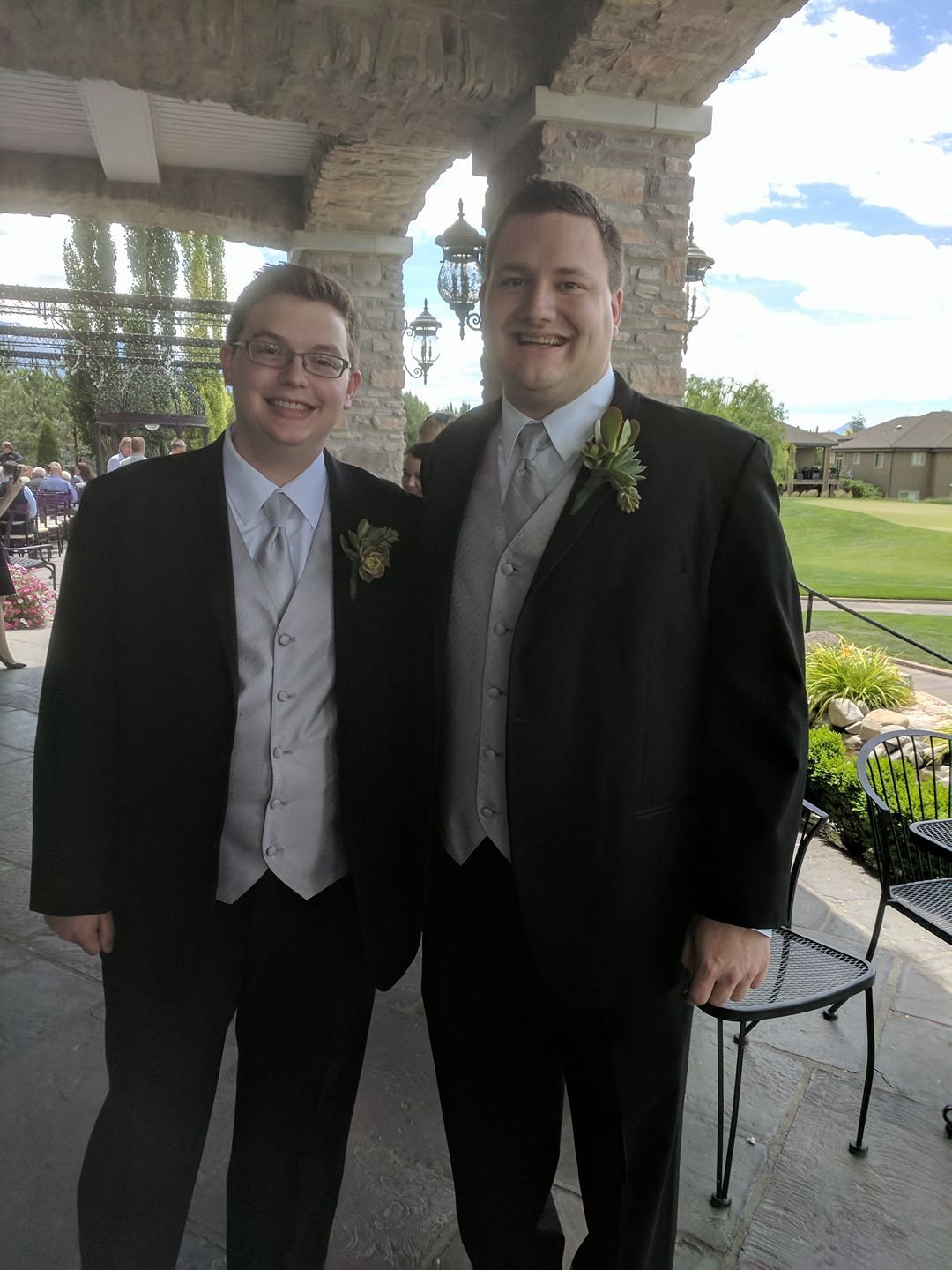THE DEBRA OAKS COE STORY
This week’s family story is written by Debra Oaks Coe, who works as a volunteer on suicide prevention and is the founder of Of-Worth.com. Her husband Don Coe is a retired Army Officer, and the two are the parents of 5 children and 8 ½ grandchildren. Thank you, Debra, for sharing your story.
I always considered myself a good Latter-day Saint Mom who taught her children to “choose the right.” Among other things, I taught them not to drink, not to smoke, and not to be gay.
My husband, Don, has always had a strong sense of seeing everyone as deserving of the same respect, dignity, and compassion. It was important to him to treat everyone as equals. Over time he began reading about LGBTQ issues such as the higher suicide rates, the minors rejected by family, neighbors, and members of their church congregations, and the disproportionately high percentage of homeless minors that are LGBTQ, etc. He began to understand the huge need to include and love them.
He shared this information with me, and I started doing some of my own research. But we did not know anyone who was LGBTQ, nor did we know anyone with an LGBTQ family member so it was easy to stay uninvolved.
By the summer of 2014, Don felt strongly that both of us needed to reach out to the LGBTQ community simply because it was the right thing to do. It went with his strong belief that all are loved and valued by God. I had no interest in adding to the other things I was already busy with my master’s degree, helping our oldest son who was chronically ill, and in the process of getting my elderly parents moved out of their home and into assisted living care.
I did reluctantly agree to attend a documentary being shown at BYU’s film department about what it was like to be an openly gay student at BYU. It was my first exposure to hearing a gay person’s lived experience. That documentary was eye-opening to me and tore at my heartstrings. For the first time, I became aware of the numerous unique challenges they faced. Over the next several weeks we had the opportunity to hear several more personal stories of pain and agony because of how they were treated. Many had attempted suicide, and many had friends who had completed suicide.
While we had been reading peer-reviewed, scientific research on many aspects of being LGBTQ, these personal stories had the most powerful impact on us.
Soon we became involved with LGBTQ students at BYU and Utah Valley University. Their off-campus support group was comprised mainly of returned missionaries wanting to find their place in the church. We began hosting monthly dinners to provide better emotional support. Our conversations during those dinners and the gratitude we experienced confirmed the importance of treating all of God’s children with respect and love.
Not long after we had gotten involved, a woman told my husband, “If you don’t know anyone who is LGBTQ, it is because they don’t trust you enough to tell you.” Two months later, our youngest son came to us privately and said, “I can’t believe you are supporting me, and you don’t even know that I am gay.” Some parents suspect one of their children might be gay, but we did not. It was a complete surprise for both of us.
We had already educated ourselves enough to know that our initial reactions were critical. We knew not to blame him, not to blame ourselves, and not to blame each other. We spoke only of our love for him. We realized that he was the exact same outstanding son we had always loved and were proud of. As I hugged him, I felt his body trembling inside and recognized that I had hurt him as a young vulnerable teen – this very child I was given the responsibility to protect and nurture. I loved him more than my own life, yet my words had taught my son to hate himself.
Throughout his life, our son had done everything he could to be worthy of God’s love. His behavior was nearly perfect – unusually so. As a teenager, we called him “Mr. G-Rated” because of how careful he was with his viewing habits. When driving, he followed all the rules and would not drive even one mile over the speed limit no matter how late he was. He was like this in every aspect of his life.
I wish someone had told me years earlier that you cannot just teach your children not to be gay. It is not a choice. I wish I had always shown unconditional love toward LGBTQ people, been less judgmental, and reached out much sooner. I had no idea it was my own son I was hurting.
Although our son was out to our family, hardly anyone else knew he was gay and he remained a faithful member of the church.
In the summer of 2015, in reaction to the Supreme Court decision on same-sex marriage, things were said in our son’s ward and stake that went well beyond supporting “traditional marriage.” Thoughtless, hurtful words that demonized LGBTQ people were said to our son and others. These were things none of us would have said directly to someone we knew was LGBTQ, especially not an active faithful member of the church.
Hoping for less hateful comments at church, our son finally moved to a new area to change the ward and stake he lived in. Sadly, it was no less painful and he realized that he need to protect his mental health. Our son then stopped attending church because of so many painful things being said in his ward and stake that vilified and marginalized LGBTQ people. He didn’t step away from the church--he was shoved out of the church by people who did not understand.
The biggest problem seemed to be people simply not being aware of all the church statements and information that has been provided. Our son’s experience, along with the experiences of the students we helped and some of our own experiences, caused us to start looking up all the positive quotes we could find from church leaders. We then started sharing those with parents and with our own local priesthood leaders. We’ve found these invaluable in helping Latter-day Saint families stay unified.
Fortunately, our stake president offered to start meeting with us periodically. He did not know our son was gay, but he did know that we reached out to the LGBTQ students from BYU and UVU. We cannot overstate how helpful these meetings with him were. It gave us needed support and a safe space to talk about the difficulties we faced. Following Church leaders and doctrine, our stake president worked to help our stake be more Christlike.
As mentioned earlier, our oldest son, Marshall, was chronically ill. He knew his time on earth was limited to only a few more years. He hoped to be worthy of the Celestial Kingdom. During this time, he was confused as to how best to react to his brother. The confusion increased in the spring of 2016 when our gay son announced his engagement to a man at a family dinner. After the announcement, Marshall stormed out of the room upset. Navigating this was truly a whirlwind of enormous velocity for our family.
Later that week, we met with our stake president and bishop. This was the first we told them that our son was gay. They both expressed great love for our son and the desire to help. Our stake president said he wanted to make sure our son knew that he would always be welcome in his home ward whenever he was visiting. I teared up when he followed that with, “How do we ever expect him to want to come to unto Christ if we can’t be Christlike to him now?”
Several of us consulted with our bishops and stake presidents and shared their positive counsel with Marshall, but nothing changed.
A few weeks later at stake conference, our stake president gave an exceptional talk based on the story of the sick man’s bed being lowered through the roof so Christ could heal him. He used the analogy of “tearing the roof off” to make room in our chapels for everyone since we all need the Savior’s healing power.
Our visiting authority also gave a beautiful talk stating that God loves all His children, and we should, too. Afterward, I shook his hand and shared some of our story. He then took several minutes to give me positive counsel I knew would be helpful I went home and shared everything with Marshall.
The next Sunday was Mother’s Day and the whole family came for dinner. Marshall continued to stay distanced. But he must have thought about what I had shared. After dinner, his brother and his fiancée were the first to leave. Just as he was getting in his car, Marshall jumped up, bolted out the front door, and gave his brother a hug, telling him how much he loved him. Then he said, “You can’t leave without me hugging my new little brother,” and gave our son’s fiancé a big hug. It was a unifying moment for all of us.
Exactly one week later, Marshall unexpectedly passed away from his chronic illness. That hug was the last moment he saw his youngest brother and his fiancé. The peace that last hug brought our family is immeasurable.
Our son was engaged for about a year. Over the next twelve months our stake presidency shared many messages of love from Jesus Christ’s teachings such as the parable of the Good Samaritan. These were done in both ward sacrament meetings and in stake conference. While seemingly small, this emphasis had a huge impact.
When our son did marry, we had a huge outpouring of love from our ward and stake leaders. A surprising number came to the wedding reception to express their love for our son. We are sure none of them thought gay marriage was acceptable in our doctrine, but they understood the importance of reaching out to our son and his husband by showing the Christlike love that we talk so much about. All who attended expressed their love for our family and made it one of our best experiences in the church. It drew us closer to our ward family and to Christ’s teachings.
Sadly, not everyone has such a positive experience. My husband and I long for the day that as members we first practice “loving one another.” We pray that we will all remember who our neighbor is just as in the parable of the Good Samaritan. Demonizing and marginalizing people, for any reason, are not part of our gospel and have never been part of Christ’s teachings.
I now work on suicide prevention, education, and helping people learn what it means to love your neighbor as yourself. I do this in several ways including writing articles and through my website of-worth.com.
I have also come to realize that there were better ways that I could have taught my children instead of just emphasizing all the things not to do such as smoking and drinking. I now see the importance of emphasizing the positive instead. I now focus on healthy living and that loving yourself and others is the most important part of mental, physical, and spiritual health.







